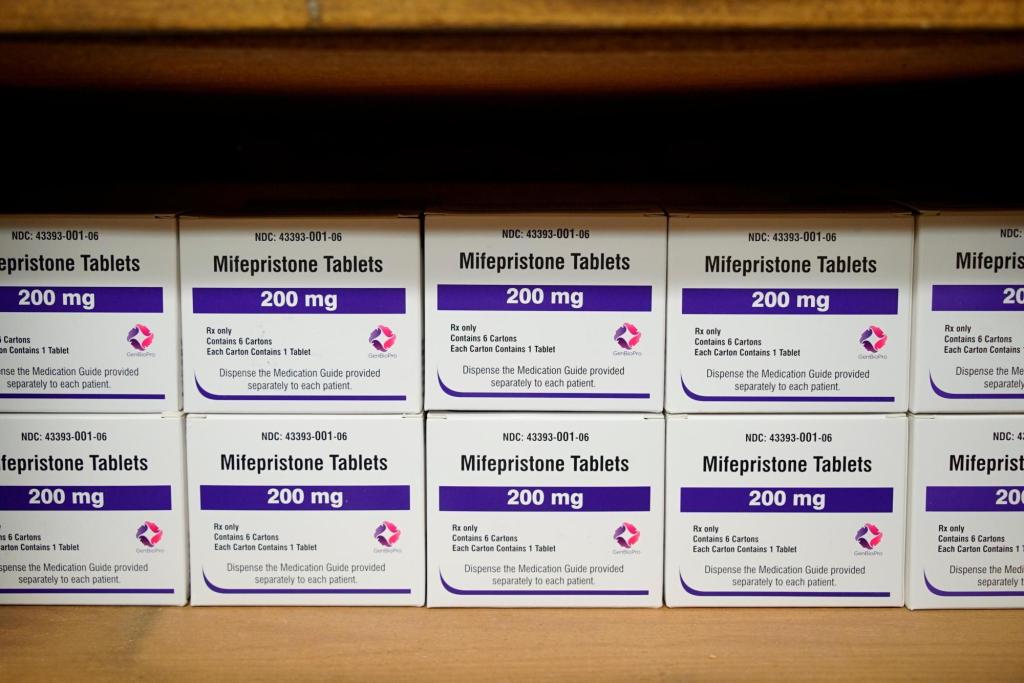Mifepristone. A drug you may have never heard of could alter the outcome of the presidential election and control of Congress.
Each year, the U.S. Supreme Court packs its docket with controversial cases of national importance. This term is no exception. From guns to Trump’s ballot eligibility, Texas’ controversial immigration laws, and deciding whether Trump is immune from prosecution for trying to overturn the 2020 presidential election, the list goes on and on.
But, if recent history is our guide, one case could have greater political implications more than any other.
Less than two years after the Supreme Court decided Dobbs, which overturned Roe v. Wade, the court heard oral arguments this week in Food and Drug Administration v. Alliance for Hippocratic Medicine over access to mifepristone, part of a two-drug combination used to terminate early pregnancies.
The Guttmacher Institute, a research group that supports reproductive rights, reported this month that medication abortions accounted for 63% of all abortions in 2023, an increase from 53% in 2020. That number is likely higher because it doesn’t take into consideration the 12,000 patients in 14 states that have banned abortion who have been prescribed mifepristone through telemedicine from doctors in six states that have shield laws.
Anti-abortion activists have had their sights set on eliminating access to the drug since Dobbs, and they have brought forward a sham case to do that.
The Supreme Court will now decide whether the FDA acted lawfully when it expanded access and availability to the widely used and increasingly prescribed drug, mifepristone. The FDA approved it in 2000, and decades of research and studies have proven it is highly safe and effective.
In recent years, the FDA has taken a series of steps to eliminate unnecessary restrictions and make mifepristone more accessible. These regulations include allowing it to be taken from seven to 10 weeks into pregnancy; permitting more health-care providers to prescribe the drug; allowing telemedicine consultations; and sanctioning the drug so it can be delivered through the mail.
Fortunately for the Supreme Court, it doesn’t have to get to the substantive question of whether the FDA’s actions were proper, a decision with profoundly bad ramifications that go far beyond abortion medication by chilling the development of medications that improve health and save lives. Instead, the court can, and should, kick this case on the issue of legal standing, which requires the plaintiff to identify an injury in fact that is concrete, particularized and actual or imminent that can be remedied by the court.
Like the recent sham 303 Creative case — in which the Supreme Court held that Colorado graphic designer Lorie Smith, who never made or sold a wedding website, had license to discriminate and refuse service to members of a protected class — this abortion medication case also is a sham, with no live dispute. In the 303 Creative decision, the court further stretched its credibility by using that case as a vehicle to dismantle public accommodation laws that were deeply rooted in our nation’s history.
Notably, the FDA case was brought by an umbrella of anti-abortion groups that formed a new organization, the Alliance for Hippocratic Medicine, for the purpose of eliminating or restricting access to mifepristone. The plaintiffs are doctors and organizations opposing abortion on religious and moral grounds; they do not prescribe mifepristone, provide abortion care, or are required to do or refrain from doing anything related to abortion care. The case was neither rooted in science nor the law. And, it doesn’t take a legal scholar to rightfully conclude that the lack of standing should be dispositive and preclude the Alliance for Hippocratic Medicine from prevailing in this bogus lawsuit – a point that wasn’t lost in oral argument.
The implications of this decision are enormous. The court’s decision could make medical abortions much harder to get, rolling back access to a drug that is safer than Tylenol.
A decision restricting access could turn the course of the election. Public opinion polls hover around 70% of Americans who support the pill remaining legal and available.
Remember the midterm elections in 2022 when political pundits predicted the Red Wave? That never materialized. The court’s decision in Dobbs was wildly unpopular. Undoing a decades-long right to reproductive health set off a political earthquake that energized independents and female voters and surprisingly shifted the outcome of those midterms. Democrats positioned Republicans as extremists and, in several key swing states, abortion access edged inflation as the most important issue to female voters. Lo and behold, Democrats maintained control of the Senate, along with garnering other major state wins.
Unlike their handling of the 303 Creative case, the court could save the Republican Party by sidestepping this sham case and, at the same time, help restore trust in the institution as a fair and impartial arbiter as opposed to being seen as a political institution.
When the Supreme Court overruled Roe, Justice Samuel Alito wrote that, “it is time to heed the Constitution and return the issue of abortion to the people’s elected representatives.” A decision rolling back access to mifepristone would further strain this court’s credibility on that point and likely galvanize independent and women voters with disastrous national consequences for Republicans with close elections in November.
Doug Friednash grew up in Denver and is a partner with the law firm Brownstein Hyatt Farber and Schreck. He is the former chief of staff for Gov. John Hickenlooper.
Sign up for Sound Off to get a weekly roundup of our columns, editorials and more.
To send a letter to the editor about this article, submit online or check out our guidelines for how to submit by email or mail.
